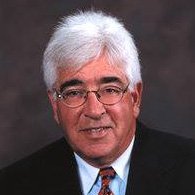Achieving Success in the Practice of Dentistry – Part Eight
March 18, 2014
Successful doctors, as I’ve said in an earlier post, do a great job of offering treatment choices and have a high level of case acceptance with a focus on quadrant and arch dentistry. These successful doctors then know how to schedule treatment in a way that maximizes productivity and profitability.
Productive doctor scheduling is actually a topic where I feel that I have more expertise than just about any other area in dentistry. I started consulting full-time 18 years ago, but prior to that–for the last seven or eight years that I was in clinical practice–I was doing some part-time consulting in a very niche area -showing busy dental practices how they could be more productive and more profitable through scheduling techniques developed in my own practice. This would involve an analysis of current production per hour in a practice that was pretty busy, followed by a six hour seminar with their entire team, teaching them how to increase their production. There is, you know, a big difference between being busy and being profitable. Obviously it would be beyond the scope of a blog post to give all the specifics of how to do this. But here are some basic principles of scheduling that I frequently see in a successful dental practice:
• Realize – as simple as it seems – that there are only so many available hours in the day, and so many days in a week. Once the time goes by, you never get it back. So you have to try to maximize every hour of every day.
• Have a consistent 12 to 15 minute morning huddle at the beginning of the day. I really do believe that practices that have a morning huddle do 15% better than those that don’t.
• Do not save designated time blocks for emergencies. Emergency time can be determined at the morning huddle every day. At the huddle, identify the three best times based on the doctor’s schedule that day as to where an emergency could be seen. Those are the times that are offered to an emergency patient who calls. That emergency is always side booked.
• Do not do definitive therapy for emergency patients. That is the surest way to get behind. Palliative treatment is what is indicated.
• Do not place a procedure in the primary schedule unless it has been diagnosed by a doctor exam and financial arrangements have been made with the patient.
• Seat every patient requiring local anesthesia in a room 20 minutes before the doctor will be starting that actual procedure. The doctor leaves the patient he or she was treating, takes a quick few minutes to deliver the anesthesia to the patient who was just seated, and then returns to the original treatment room to finish the dental procedure.
• Stop scheduling defensively. I see a lot of sloppy scheduling where much too much time is allocated to a procedure. This of course may be a defense mechanism by the front desk if the doctor is always running late.
• Delegate delegate delegate–where ever possible to highly trained dental assistants.
• Stay on time–the best schedule in the world can be blown up by the doctor. The doctor absolutely has to know when to “punt”. In a football game, if it’s the first quarter and you have 4th down on your own 30 yard line and three yards to go, the obvious move is to punt the ball away. There is plenty of time left in the game to score. With that same yardage situation and only a few minutes left in the game, you don’t punt. You go for the first down or else the game is over. Metaphorically, when there is a pulp exposure in the middle of a prep temp impression visit for a crown, or when your impression fails because of gingival bleeding – this is the time to punt. Finish up what you can in the allotted time period, and re-schedule the patient for another day to finish the procedure. Cut your losses. Don’t be tempted to extend that appointment and get 30 to 45 minutes behind for every other scheduled appointment and keep those patients waiting.
Running late and behind schedule on a consistent basis is just not acceptable. Working into the lunch hour and past the normal end of the day gets pretty old. Clearly the doctor must be aware of the time. Productive doctor scheduling is an absolute must to insure a successful dental practice.
No Comments
No comments yet.
RSS feed for comments on this post.
Sorry, the comment form is closed at this time.

